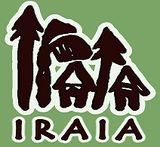History is always a work in progress, because society itself — as the subject of history — is always a work in progress, in its relentless flow of change, like a river that defines its own course, constrained by the original landscape but eventually changing that landscape. (Now you know why IRAIA means “Iraia River Archives Inter Alia”. It’s a recursive name.) The masses of people make history every day, whether they are aware of it or not, whether they intend it or not, through the accumulated impact of millions of individual and group decisions and actions that they make daily.
The writing of history is thus necessarily also a work in progress. The masses of people, who make history in the sense of changing the fabric of their society, thus should also empower themselves to make history in that other literary sense, that of writing it. To write something down is to give it shape and meaning, which are key to understanding it, and hopefully, to give it direction. History is thus too important to be left to historians.
It is said that journalism is history written on the run–or on the fly, if you are fond of flying. If we take the obverse view, history can thus be said to be journalism too, but journalism written in far hindsight. It’s as if our hypothetical river traveler, the journalist-historian, makes a frequent stop along the riverbank and retraces the river’s route by walking upstream on foot to inspect features he hadn’t noticed on his rushed travels downstream. The IRAIA Wiki history page attempts to capture this fluid interface where journalism blends imperceptibly into history.
But this history section is not just for historians and journalists, but for ordinary people wanting to add their own individual or local or group contribution to the mainstream of collective history, like so many rivulets forming tributaries that ultimately join the great river on its way to the sea.
The IRAIA history page will offer systematic ways of viewing history in the form of a theoretical framework that builds on the combined foundations of historical and cultural materialism, and outlines of specific historical threads. As regards sources, it will give particular importance to manuscripts, recordings of oral histories, and bibliographic tracking of literature and archives. #

